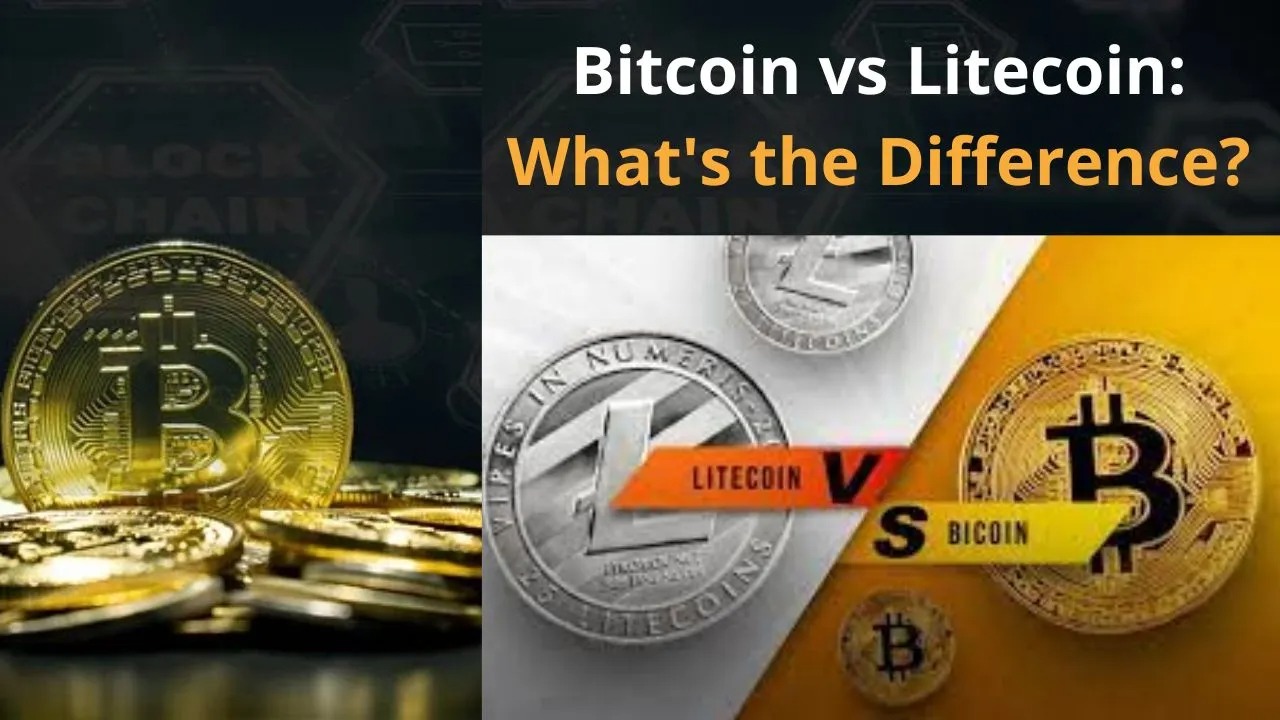"Advertisement"
Bitcoin vs Litecoin: What’s the Difference?
Hello My Dear Friend, In this post “Bitcoin vs Litecoin: What’s the Difference?“, We will going to read about the difference between Bitcoin and Litecoin in detail. So…
Let’s Start…
Bitcoin vs Litecoin: What’s the Difference?
Bitcoin and Litecoin are both decentralized, digital currencies that enable peer-to-peer transactions. However, there are a few key differences between the two.
"Advertisement"
One key difference is the total number of coins that each cryptocurrency can produce. Bitcoin has a maximum supply of 21 million coins, while Litecoin has a maximum supply of 84 million coins.
Another difference is the mining process. Bitcoin mining uses the SHA-256 hashing algorithm, which is more complex and requires more powerful computers to solve.
Litecoin mining, on the other hand, uses the Scrypt algorithm, which is designed to be easier to run on personal computers.
Finally, the block times for the two cryptocurrencies differ. The average block time for Bitcoin is about 10 minutes, while the average block time for Litecoin is about 2.5 minutes.
"Advertisement"
This means that transactions on the Litecoin network are generally processed more quickly than on the Bitcoin network.
Overall, while Bitcoin and Litecoin share many similarities, the differences between the two cryptocurrencies can affect their use and adoption.
Here are some key points outlining the differences between Bitcoin and Litecoin:
- The total number of coins: Bitcoin has a maximum supply of 21 million coins, while Litecoin has a maximum supply of 84 million coins.
- Mining process: Bitcoin uses the SHA-256 hashing algorithm, which is more complex and requires more powerful computers to solve. Litecoin uses the Scrypt algorithm, which is designed to be easier to run on personal computers.
- Block times: The average block time for Bitcoin is about 10 minutes, while the average block time for Litecoin is about 2.5 minutes. This means that transactions on the Litecoin network are generally processed more quickly than on the Bitcoin network.
- Market capitalization: As of January 5, 2023, Bitcoin has a market capitalization of approximately $977 billion, while Litecoin has a market capitalization of approximately $11 billion.
- Adoption: Bitcoin is more widely adopted and accepted as a form of payment than Litecoin. However, Litecoin has a strong following and is often seen as a cheaper alternative to Bitcoin.
- Purpose: Both Bitcoin and Litecoin were created as alternatives to traditional fiat currencies, but they have slightly different focuses. Bitcoin was intended to be a global, digital currency that could be used to store and transfer value. Litecoin was created as a “lite” version of Bitcoin, with the goal of faster and cheaper transactions.
Both Bitcoin and Litecoin use a process called “mining” to verify and validate transactions on their respective networks. This process involves using computers to solve complex mathematical problems, and it requires a significant amount of energy to run.
As a result, both Bitcoin and Litecoin have been criticized for their high energy consumption and potential negative impact on the environment.
The exact environmental impact of Bitcoin and Litecoin mining can vary depending on a number of factors, including the location of the mining facilities and the type of energy being used.
Some researchers have estimated that the energy consumption of the Bitcoin network could be as high as 7.7 gigawatts, which is equivalent to the energy consumption of a small country.
To address concerns about energy consumption, some cryptocurrency projects have focused on developing more energy-efficient mining algorithms.
For example, the Proof-of-Stake (PoS) consensus mechanism, which is used by some cryptocurrencies, requires miners to show ownership of a certain number of coins in order to create a new block, rather than relying on computational power. This can potentially reduce the energy consumption of the mining process.
Overall, while Bitcoin and Litecoin are not necessarily more or less environmentally friendly than other cryptocurrencies, their energy consumption is an important factor to consider when evaluating the sustainability of these systems.
Finally, Thanks For Reading “Bitcoin vs Litecoin: What’s the Difference?“.
If you have any questions related to “Bitcoin vs Litecoin: What’s the Difference?“, So, please comment below.
Must Read:
"Advertisement"

